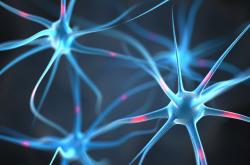The Role of Neurofeedback in the Relief of Stress and Fatigue
In the treatment of adrenal fatigue, diet, exercise, and other lifestyle changes are rarely sufficient to realize full recovery. The brain’s performance also needs to be adjusted, and neurofeedback is a safe and effective way to accomplish that goal.
Given the role of the brain in the stress response process, and the influence it exerts on many of the factors that lead to fatigue, it is only natural that researchers would look for new and powerful ways to address these problems at their source. Neurofeedback is but one of several new techniques that have grown in popularity in recent years, as doctors have discovered them to be effective therapeutic treatments to assist patients in the stress management process.
Neurofeedback
While its name sounds like the stuff of science fiction, neurofeedback is a very real and effective way to address brain function. It is a type of biofeedback that directly addresses the bioelectrical brain functions. When used properly, it can have a variety of beneficial effects on fatigue patients, and especially on those patients suffering from adrenal fatigue.
The neurofeedback technique is not designed to treat fatigue on its own, however. Patients who are hoping that this technique might be a silver bullet that ends their fatigue issues altogether hope in vain. Instead, neurofeedback is a therapy designed to help the brain learn how to engage in normal self-regulation again. That re-education can help to restore the natural circadian rhythm that adrenal fatigue destroys - which can in turn improve the quality of the patient’s sleep cycle and restore much of that lost energy.
There is No Magic Pill to “Cure” Fatigue!
It cannot be emphasized enough that neither neurofeedback nor any other form of therapy for the brain can “cure” fatigue on its own. While the brain plays a critical part in the dysregulation of the body’s rhythms that leads to fatigue, brain-focused therapies are not enough to fix those problems entirely. Neurofeedback can be a vital part of the healing process, but only when used in combination with other critical stress management efforts:
- You still need to focus on a stress-reducing healthy diet.
- You cannot neglect exercise and other physical activities.
- Lifestyle changes designed to avoid or minimize stress must still be implemented.
- Nutritional supplementation should still be part of your recovery plan!
How Does Neurofeedback Work?
Neurofeedback works by focusing on the brain’s electrical activities. As your brain processes information and performs other vital functions, neurofeedback does exactly what its name suggests: it feeds information back to the brain. The reason this therapy is so successful is that it delivers this information at a speed that is so rapid that the conscious mind has no awareness of the process.
So, as the brain engages in its various functions, this feedback returns information about how those functions are being performed. As the brain subconsciously processes this information, its ability to make self-corrections for better regulation causes subtle changes in how it performs. Over the course of three or four dozen sessions, the brain conditions itself to function properly, just as your body would become conditioned to lifting weights or other forms of exercise. This is merely a focused brain exercise with a specific set of goals.
The Neurofeedback Process
The actual process for receiving neurofeedback therapy is fairly simple for the patient. The doctors will generally have you sit in a comfortable chair and will affix electrodes to the skin of your scalp. The exact arrangement of these electrodes varies with each patient. Those are connected to an amplifier and computer display capable of transmitting and converting your brain’s bioelectric activities into graphics on the screen.
Your doctor then chooses the programmed goal you’ve established, and the process begins. As your brain functions, the graphical representation of those functions appears on the screen. As you watch and listen to the sights and sounds on the screen, your brain processes what it sees and hears - unaware that it is actually processing feedback information about its own performance. For those who might be concerned about the process, there is nothing to fear; the entire process only exposes the brain to details about its own activities. There is no external information “pushed” into your brain.
Alpha Theta Training
Alpha Theta training is another form of neurofeedback that essentially mimics the effects of meditation. In this case, patients are exposed to audio feedback with no visual stimuli. Its effects are much more dramatic and more rapid than traditional meditation, however. This therapy focuses on the alpha theta brain waves as it targets the subcorticol part of the brain responsible for our most primal responses. It is often used when dealing with patients whose stress is related to past trauma or abuse.
Other High Tech Solutions
There are other new technologies as well, some of which can be used at home to accomplish many of these brain-training goals. There are audio-visual machines designed to improve relaxation and sleep, cranial electrotherapy devices that can help to deal with anxiety and certain types of pain, and electromagnetic wave devices that target the connection between the heart and brain. The latter is often used for more effective stress management.
How Neurofeedback Helps With Fatigue?
As noted before, this is not a cure for stress, adrenal fatigue, or any other condition. However, these technology-based therapies can prove quite effective at enabling the brain to figure out just how out of kilter it might be in its management of the stress response. And since the entire stress response begins within the brain, it only makes sense to target that critical area when you’re trying to stop the problem.
The beauty of the human design is that the brain can be taught to do new things in different ways. As a result of breakthroughs in neuroscience, we now know that the brain has the ability to basically rewire itself as it discovers weaknesses in its performance. In this case, neurofeedback, alpha theta training, and other new technological therapies can help your brain learn to realign its priorities and restore proper function. And that can make all the difference in the world for your efforts to manage stress and recover from fatigue.
You might also be interested in:
- What Is Neurofeedback? http://www.brainworksneurotherapy.com/what-is-neurofeedback
- FAQs. http://theneurofeedbackinstitute.com/faqs/
- Neurofeedback. http://drroseann.com/?page_id=68
- Neurofeedback and Self-regulation. http://thebrainlady.com/services/neurofeedback-and-self-regulation/
- Neurofeedback Brain Training. http://www.amenclinics.com/treatments-and-therapies/neurofeedback-brain-training/

















Leave a comment